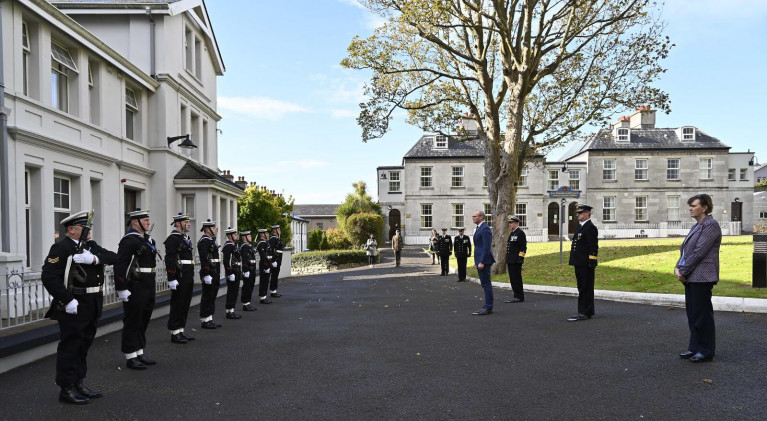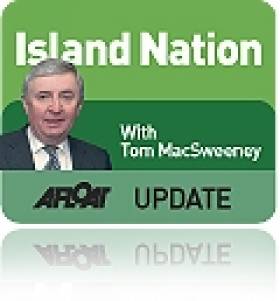Displaying items by tag: Defence Minister
Personnel in Naval Service to Get €10,000 Loyalty Payment
Personnel within the Naval Service have been thrown a financial lifeline, reports Irish Examiner, in the form of a €10,000 loyalty payment, which it is hoped will stem the exodus of trained crew members.
Defence Minister Simon Coveney has announced extra money for personnel who sign up for four years' service and undertake two of those years on seagoing patrols.
Naval Service personnel normally undertake a two-year cycle of patrol duties followed by two years of shore duties. Under the terms of Mr Coveney's 'Sea Going Service Commitment Scheme' they will have to complete a minimum of 240 days on sea patrols during a two-year period to qualify for the payment, which will be provided in four six-monthly tranches of €2,500 and will cost up to €1.2m each year.
The payment will not apply to those with less than three years' service because they're not considered to be fully trained.
It is similar to a loyalty bonus given to air corps pilots a few years ago to ensure they signed up for a minimum period of service.
More here on this scheme to encourage retention of crew personnel.
Now There is None
What a magnificent sight it was as the three Tall Ships, each flying the Tricolour, headed the fleet of the gracious ships of sail from all over the world.
How different it will be in July when the world's Tall Ships again parade down the Suir. There will be no Irish national sailing ship to lead the parade. A number of private Irish entries are expected at Waterford from June 30–July 3 amongst the 70 vessels from around the world when the city has the honour starting the race. In 2005 about half-a-million people visited the city while the Tall Ships were there.
The lack of a national tall ship is another example of governmental maritime neglect, directly due to the decision of former Defence Minister Willie O'Dea, T.D. After the sinking of ASGARD he publicly committed the Government to its replacement, but after receiving insurance compensation money for its loss, he put the money into coffers of the Department of Finance and closed down the national sail training programme. There was a big difference between what he promised and what he did, a disregard for the maritime sphere which it is hard to forgive. I also recall how former Taoiseach Bertie Ahern did not visit Waterford during the 2005 race, when it was the biggest tourist event in the country. When I broadcast my report expressing astonishment at this snub government sources and Fianna Fail didn't like it. Truth in the news can be painful!
The organisers made contacts about the DUNBRODY, which continues to earn income at the New Ross quayside where it is moored as a tourist attraction and with the JEANIE JOHNSTON, moored at the Dublin Docklands.
However, neither will be taking part, the organisers have confirmed, tough they said that it was expected that about 100 young Irish trainees would sail aboard tall ships in the race, half of them with funding support from local authority, business and other sources. A group of Irish sailors have also indicated they are making arrangements to charter a UK-registered vessel the JOHANNA LUCRETIA for the event.
Once again the Irish Government has sunk to the bottom where maritime matters are concerned.
It was announced this week in Waterford that Fáilte Ireland has made a significant financial and marketing commitment to this year's event, though the financial figure was not disclosed .A free festival programme will feature street acts; comedy; international and home-grown artists, nightly fireworks, an artisan food village and an atmosphere which the organisers say "will thrill people of all ages and nationalities."
• This article is reprinted by permission of the EVENING ECHO newspaper, Cork, where Tom MacSweeney writes maritime columns twice weekly. Evening Echo website: www.eecho.ie































































